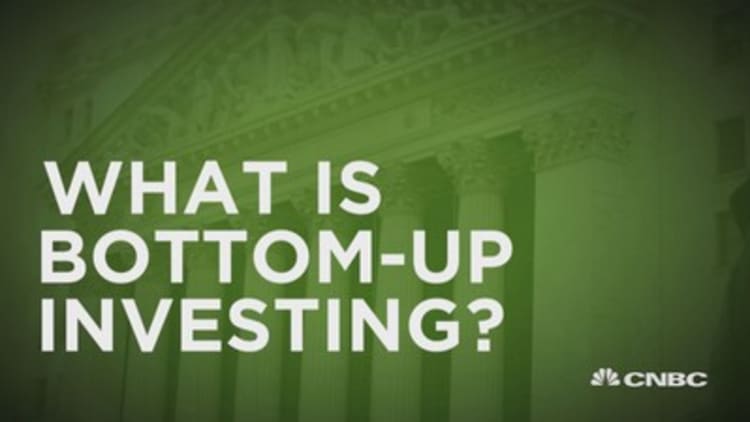
Quite simply, bottom-up investing focuses on individual securities rather than on the overall movements in the securities market or the prospects of particular industries.
The bottom-up approach assumes that individual companies can do well even in an industry that is not performing very well. This is the opposite of another approach, called top-down investing. Making sound decisions based on a bottom-up investing strategy entails a thorough review of the company in question, explains Mark Cortazzo, a certified financial planner and senior partner at MACRO Consulting Group.
A bottom-up investing approach focuses on the analysis of individual stocks. In bottom-up investing, therefore, the investor focuses his or her attention on a specific company rather than on the industry in which that company operates, or on the economy as a whole, Cortazzo said. This includes becoming familiar with the company's products and services, its financial stability and its research reports.
Read MoreMaking money ... and a difference
Bottom-up investing is likely to provide better returns over longer periods for investors, but at the same time, it might show extreme variations from the market returns. As a result, such investors typically tend to be long-term focused.
Cortazzo explains that a bottom-up investor will overlook broad sector and economic conditions and instead focus on selecting a stock based on the individual attributes of a company. So they tend to be less diverse because broader industry conditions are of no concern.
As an investor, it's very important to take the time to get a better grasp of how to approach the market from a long-term view.
Therefore, as you look to build your investment portfolio, one important thing to keep in mind is how an asset will fit into your financial needs, Cortazzo says.
That's why it's important to remember that before you begin investing, you need to determine your financial goals. Consider what you want to accomplish with your money and how your investment portfolio fits into the overall financial plan.






